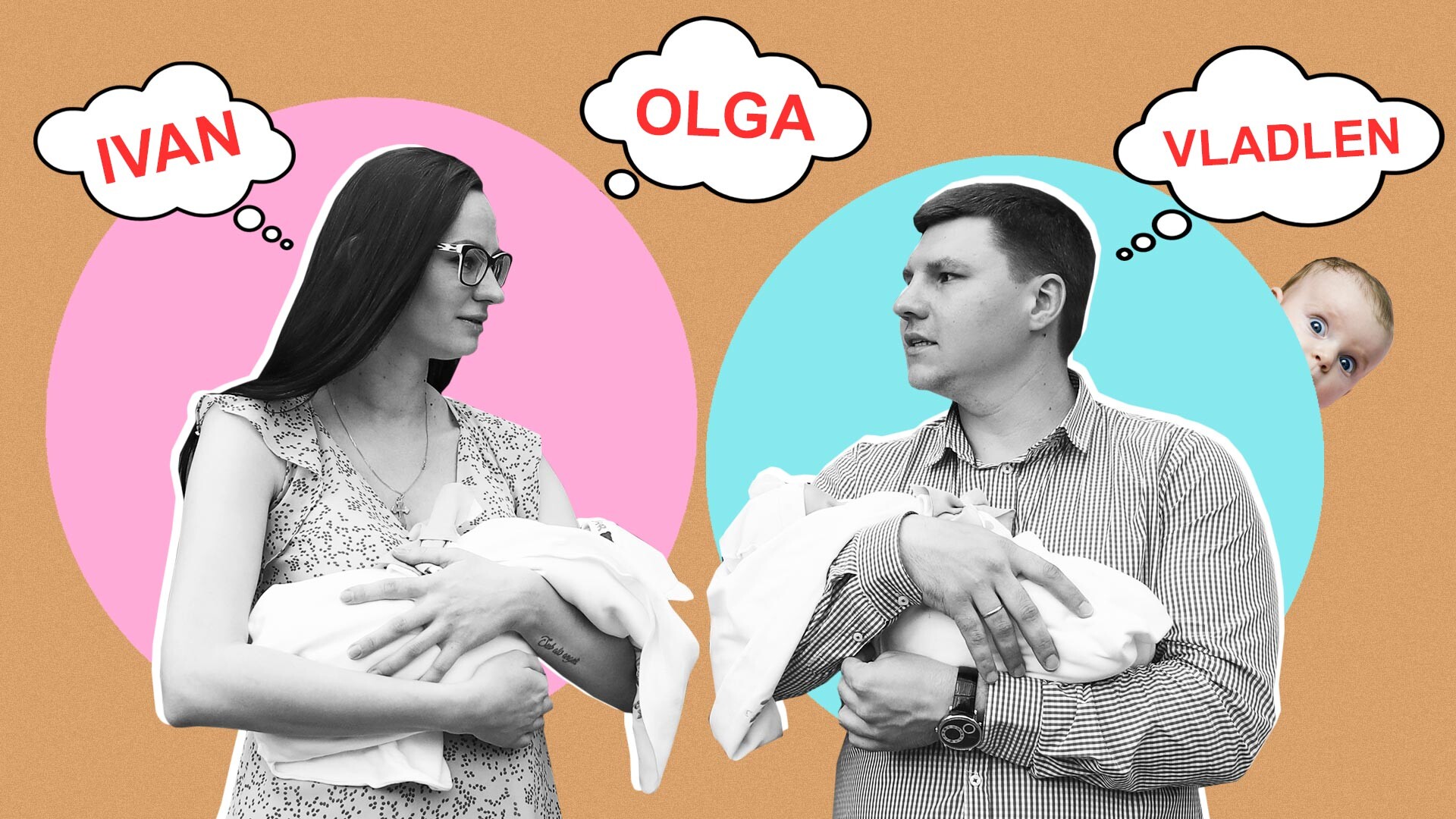
There’s a joke common in Russia about a kid with a traditional name, such as Ivan, and how he’s the black sheep at school. These days, all his classmates have names that sound ‘exotic’ to Russian ears, such as Mark, Platon, and Miroslav. Also, a girl today with the once popular name Olga is now lost among Auroras, Athenas and Miyas, which are not Russian names at all.
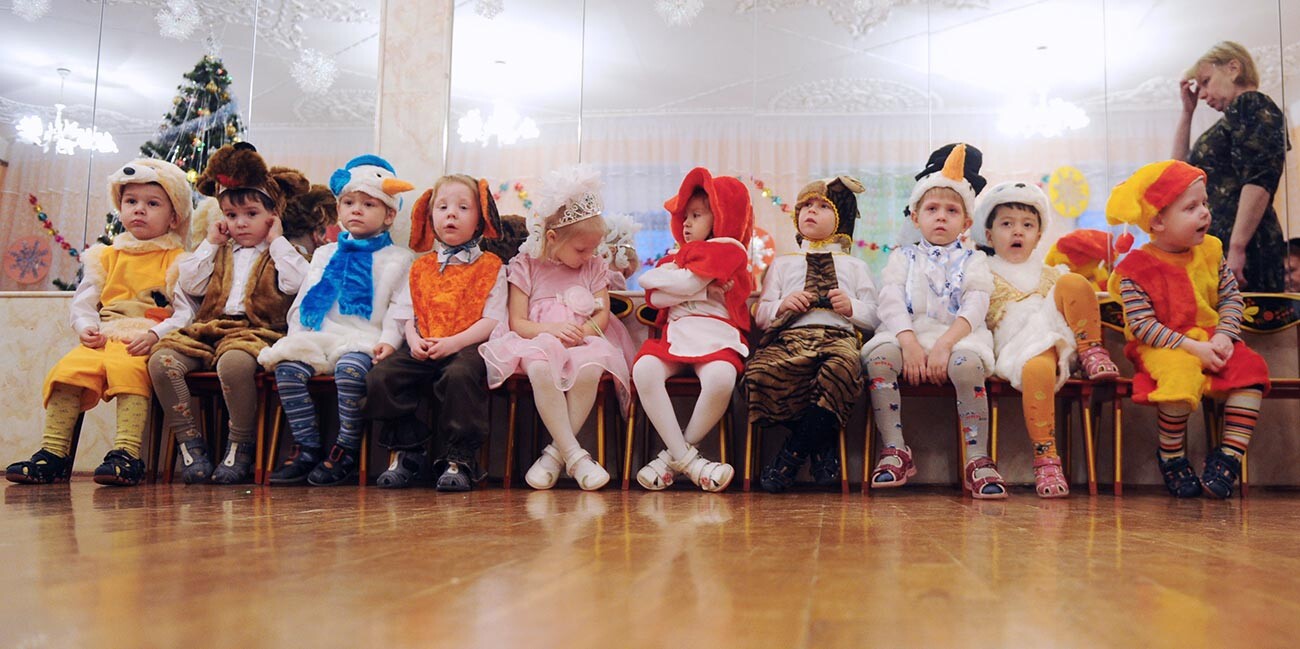
Kids with a variety of incredibly exotic names could be met here and there now in Russia
Konstantin Chalabov/SputnikMore and more Russian parents prefer Western names, such as Simon or Olivia. On the other hand, there’s also a trend to give a child an archaic Slavic name, such as Svyatogor or Fevronia. With globalization, as well as the growing interest in Russia’s historical past, you can now find in the same room a mix of kids named after both Slavic folk heroes and Hollywood stars.
Of course, things were different in the past. How did Russians choose names for their children decades and centuries ago?
For centuries, Russians used to have two names. One was given at birth, and another at the time of baptism into Orthodoxy. The first was an official name - the one a person was called in life and in official documents. The second, baptismal name was more intimate, a sort of secret name only known by God. By this name God would "communicate" with a person during prayer and church life.
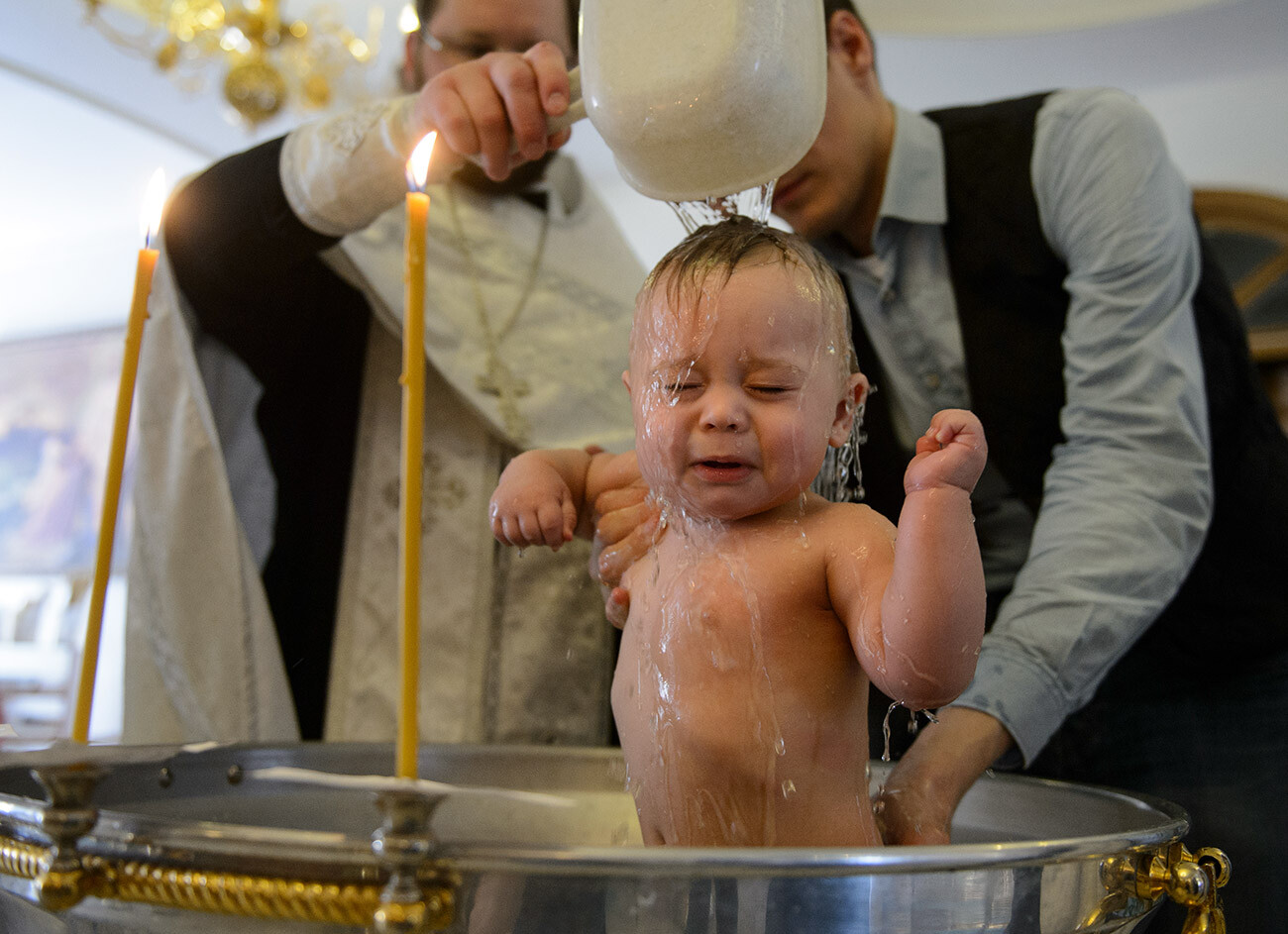
Baptism of a child in the Russian Orthodox Church
Donat Sorokin/TASSIn Old Russia people didn’t celebrate birthdays. On the contrary, they celebrated their so-called name day devoted to their patron saint. (One saintly name could possibly be celebrated several times a year).
The main rule when it came to choosing a name was looking at the Orthodox Church calendar and seeing which saint was celebrated on a particular date. It was considered a sign of piety to call a child by a certain saintly name, as it was believed that he/she became the child’s patron saint. Therefore, at the time of baptism, the priest checked the calendar and gave the child a new name that corresponded with that date.
Among the aristocracy it was common to use family names as a secular name. This rule worked for the Rurikids in the Middle Ages, as well as the first Romanovs in the late 16th century. Before Peter the Great's reign (and his embrace of European customs and manners), both secular and church names were frequently used, especially because the Church was in charge of birth and death registration.
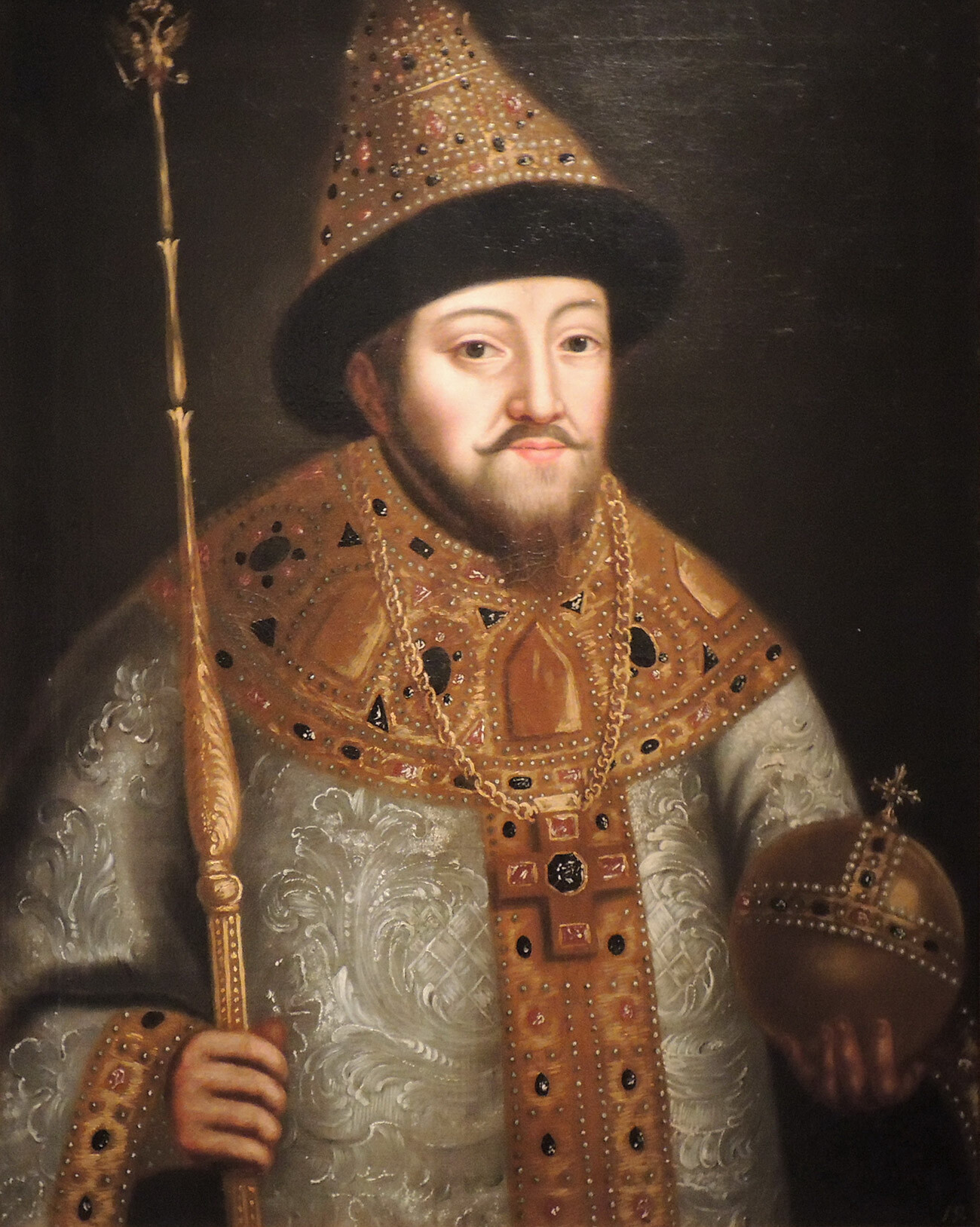
Michael of Russia, the first tsar of Romanov dynasty
Public domain“In the historical sources the use of two Christian names appear not only among members of the aristocracy, but also among the not so noble, or even lowborn clerks, merchants, artisans, peasants and serfs, widows and maidens, young children and seniors,” scholars Anna Litvina and Fyodor Uspensky wrote in their study of the tradition of Russian Christian dual-names.
Peter the Great transformed the double name tradition, and started a wider choice of names, including those in the European style. One of the best known examples is that the sons of Peter’s closest friend, Alexander Menshikov, were named Peter-Luka and Pavel-Samson.
Still, from the late 17th century onward this tradition became less common, and starting with Tsar Alexei and Peter the Great, Russia’s rulers didn’t use their second names. At the same time, a large number of foreigners came to Russia and were baptized into Orthodox Christianity, taking new and sometimes uncommon names.
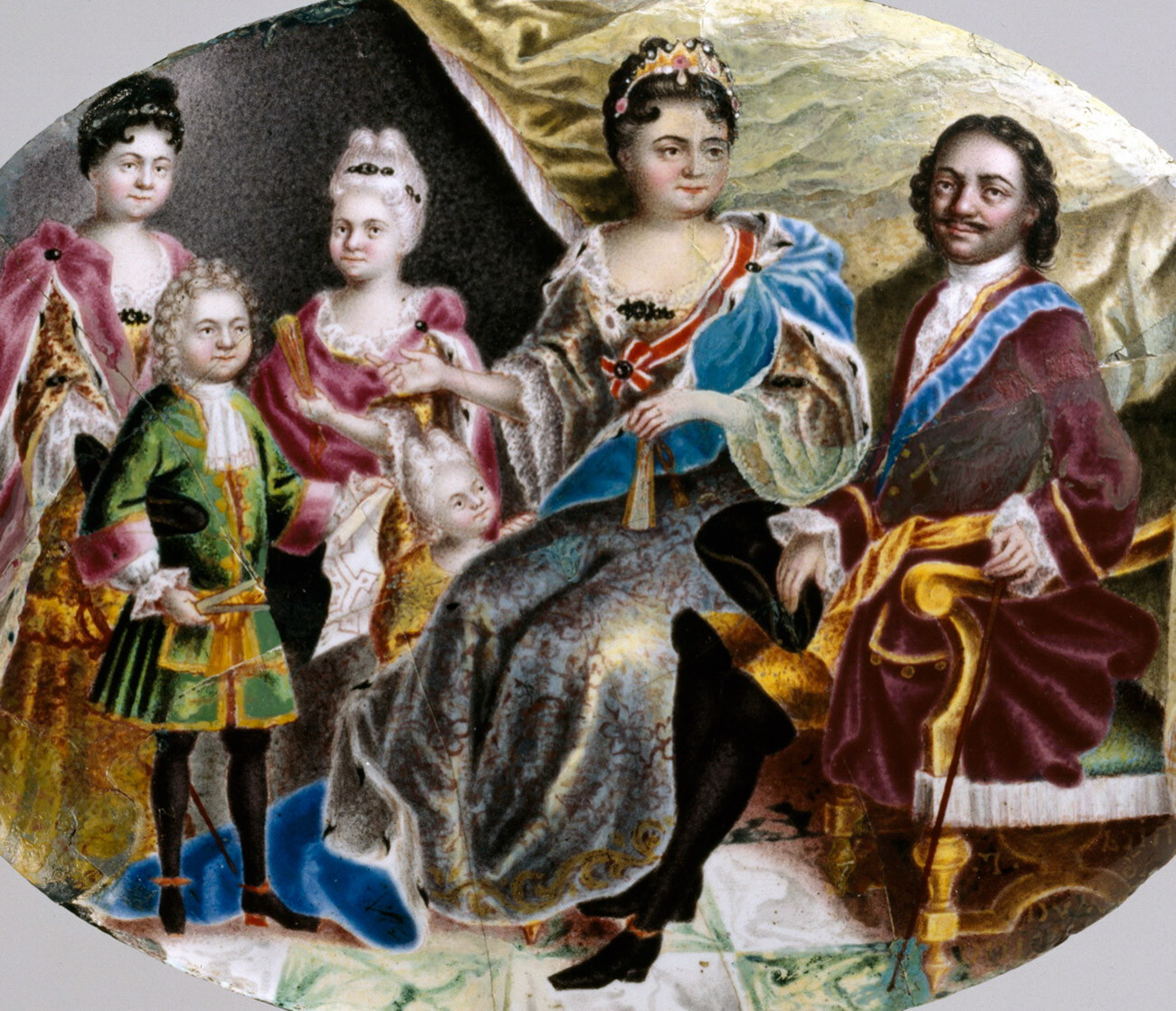
Peter the Great (right) depicted together with his wife Catherine, his three daughters Anna, Elizabeth, and Natalia, and his grandson Peter
Public domainThe birth name of Peter the Great's wife, Empress Catherine I, was Marta Skavronskaya. Catherine the Great was born as Sophie. At the same time, Peter called his daughters Elizaveta and Anna, names that were not previously used in the Romanov dynasty (and not well known in Russia). However, when these women ascended to the throne, these names became popular, and they still are.
Ancient names such as Ivan and Vasily, which used to be common among the tsars, were no longer popular among the ruling family, and starting in the 18th century there were three Peters, Pavel and then three Alexanders and two Nicholas on the throne. These names eventually became widespread among ordinary people.
The 1917 Revolution turned the country upside down, and the changes also touched name choice traditions and trends. As part of the Soviet anti-religious campaign, names were no longer tied to the Church calendar, though some believers continued to do it secretly without openly celebrating the religious name date.
New names appeared to better suit the new Soviet culture. First of all, the number of Vladimirs (named after Vladimir Lenin, the revolutionary leader) increased significantly, and from 1932 to 1950 Vladimir was among the most popular male names. At the same time, some modifications of 'Vladimir Lenin' appeared. Kids were called Vilen (V.I.Lenin), VLadlen (female Vladlena) and Ninel (Lenin spelled backwards).
There were also a range of other revolutionary names, some quite creative but others quite weird. For example, there was the rare but very Soviet name “Dazdraperma”, a shortened form of Da Zdravstvuyet Pervoye Maya - Glory to the First of May (Labor Day). “Stalik”, “Staliv” and “Stalen” were names created from Stalin. And the name “Mels” was created from the first letters of Marx, Engels, Lenin and Stalin. The name “Elina” appeared after the nearly total ELectrification and INdustrialization of the USSR.
Kids were also named in honor of foreign communists: girls were often called Rosa and Klara (after Rosa Luxemburg and Clara Zetkin); and boys - Karl and Ernst (after Karl Marx and Ernst Thälmann).
The Soviet people also made up creative names using basic elements from the Periodic Table - “Radiy” (Radium), Wolfram and others. And there were even geographical names, such as Volga. After 1961 and Yury Gagarin’s space flight, the name Yury became incredibly popular, followed by Valentina, in honor of Valentina Tereshkova, the first woman in space.
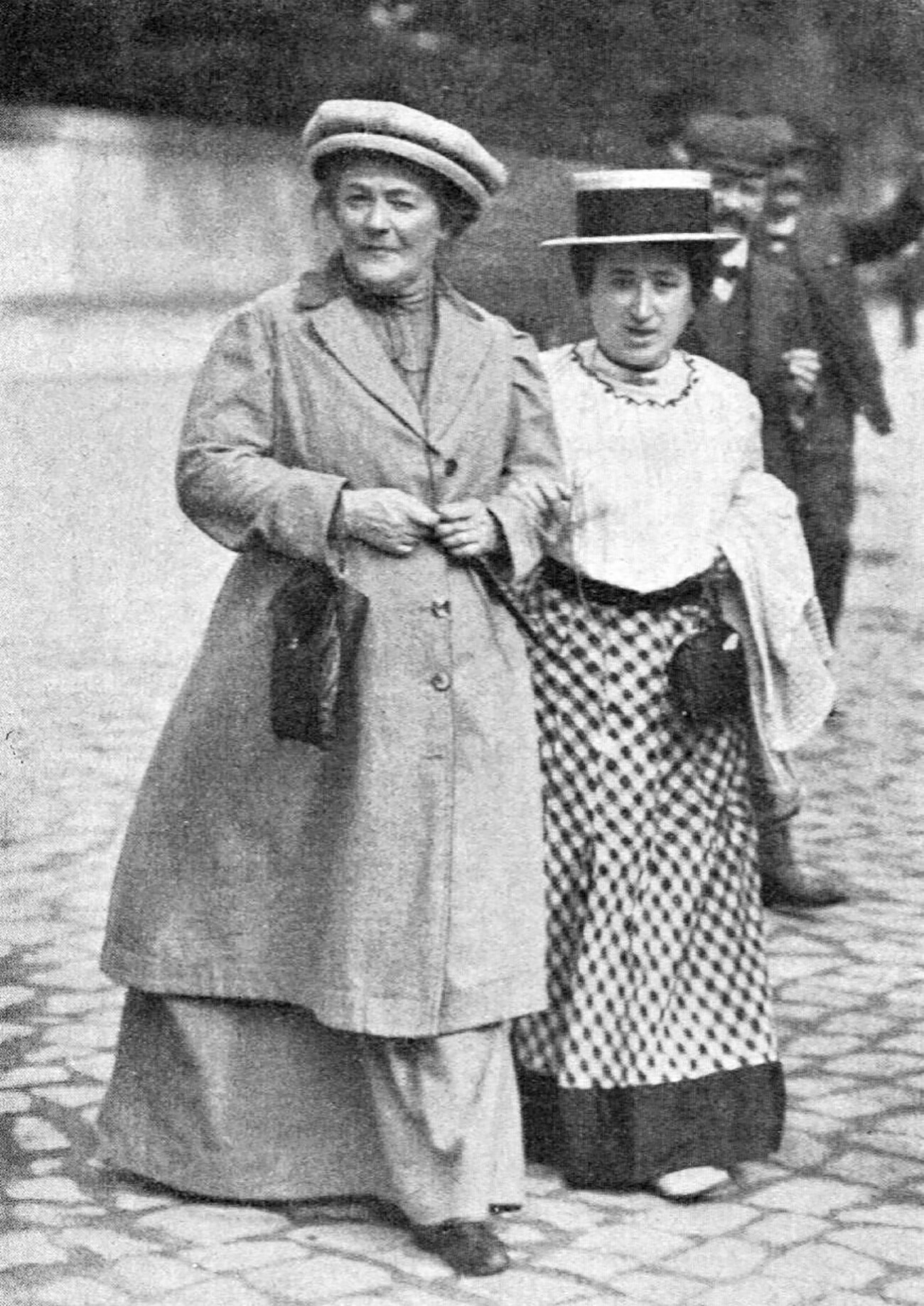
Clara Zetkin and Rosa Luxemburg, 1910
Public domainAt the same time the Soviet era unexpectedly stimulated a new interest in Russia’s past, especially pre-Christian folk stories and names not included in the Church calendar. Some old outdated Slavic names reappeared, such as Svyatozar.
Alexander, Alexey, Anatoly, Andrey, Vasily, Yevgeny, Nikolai - all these iconic Russian names in fact have Greek origins. Even Ivan is a form of the ancient Greek name “Ioann” (John). The explanation is simple. The Russian Orthodox Church borrowed from the Byzantine Greek church, and people were called after the Greek saints.
Only when many years passed and native Russian saints appeared with genuine Russian names (Olga, Vladimir, Boris and Gleb), then these spread across the country.
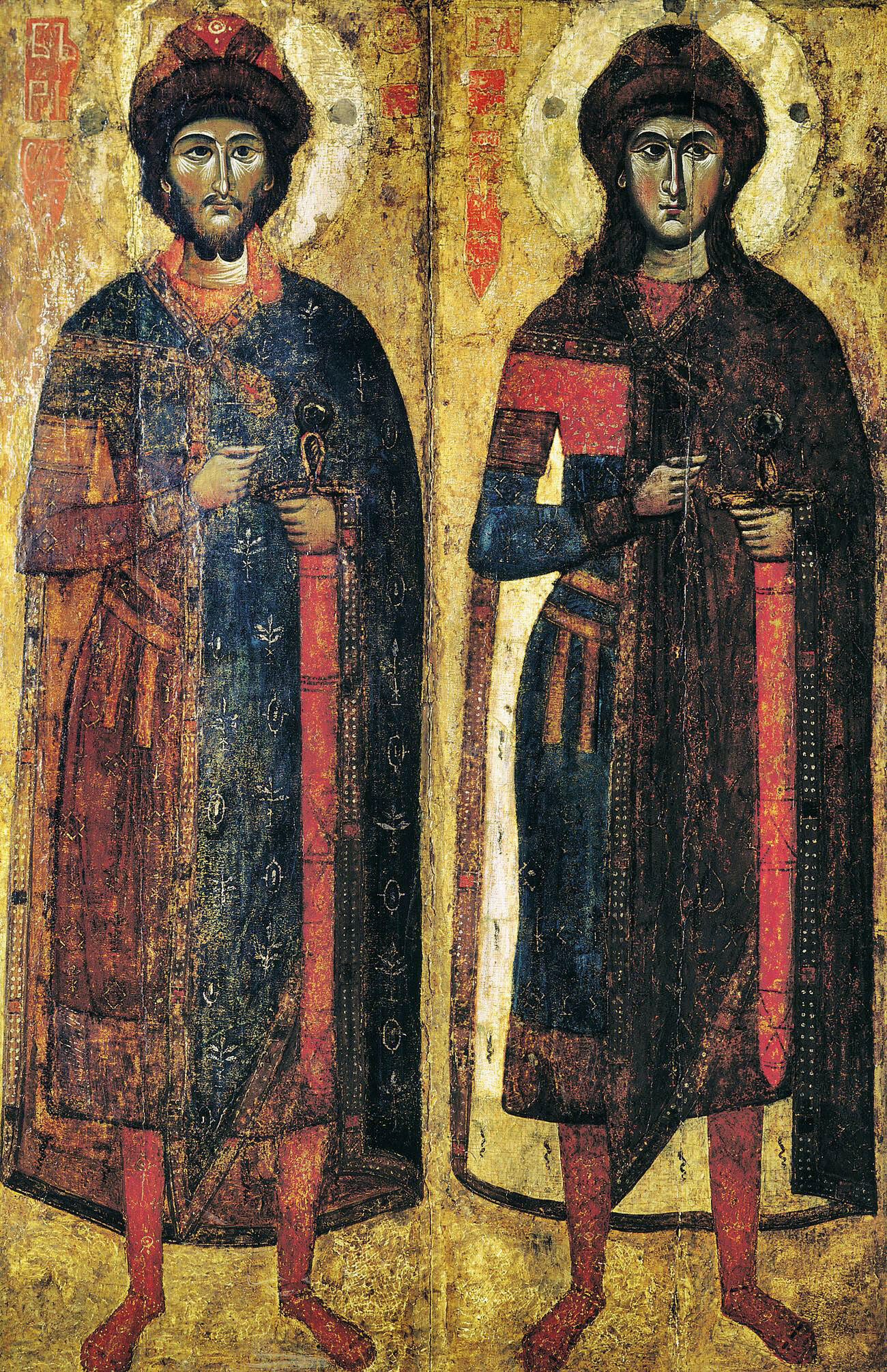
Boris and Gleb, one of the first Russian saints
Public domainStill, about half of modern Russian names have Greek roots. By the way, in 2022, the Greek name Alexander was the most popular male name for newborns (and Sophia the most popular for girls).
Some people, however, still check names in the Church calendar. “When I thought of my daughter’s name, I checked which saint is celebrated at her birth date in the calendar and there was no female name. So I picked a name that I liked and we just marked another date that matches this saint,” says Yelena, 33.
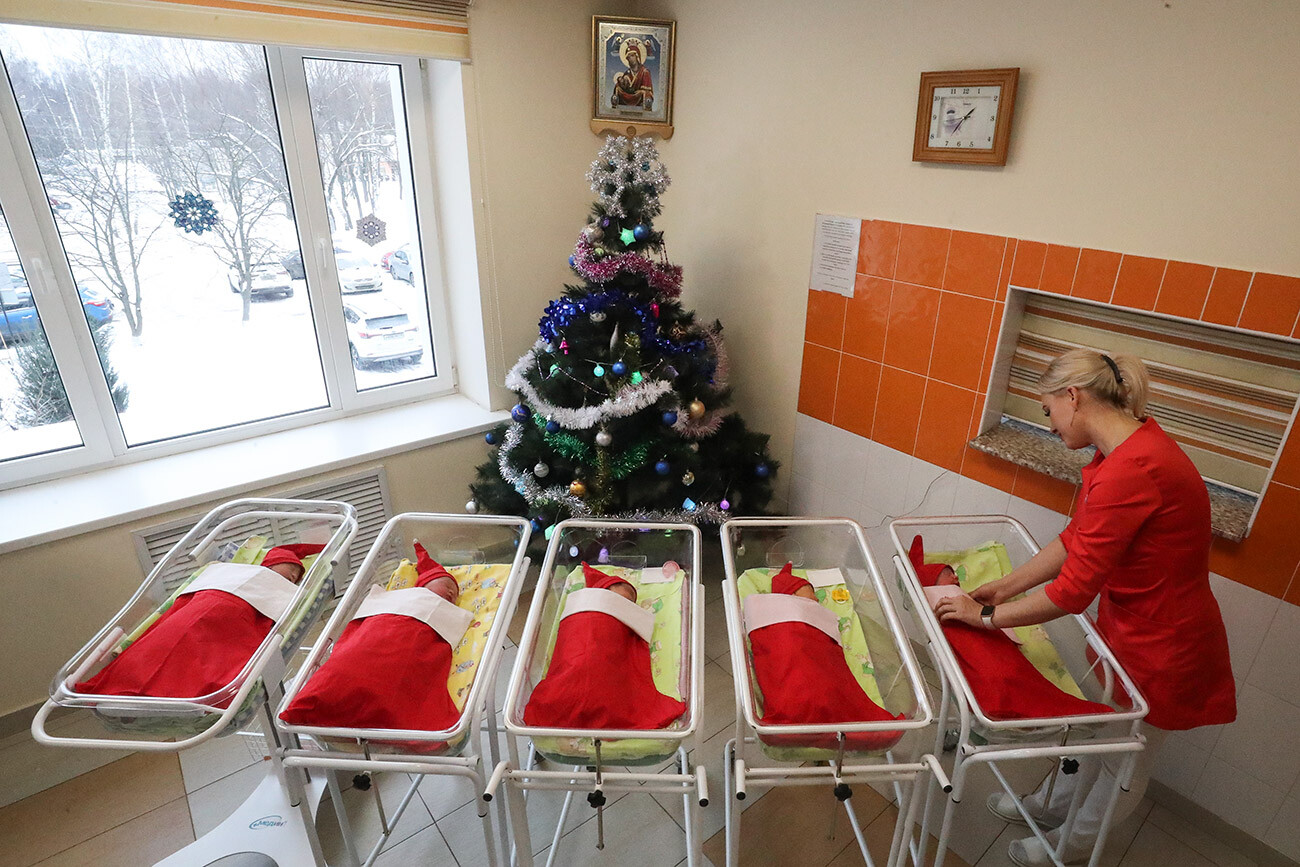
New Year in a perinatal center
Sergei Karpukhin/TASSNevertheless, many people choose names based on personal preference or follow the tradition of naming kids after grandparents and relatives. “My name is Sergei, and my father was Boris, and my grandfather was Sergei. I also want to name my son Boris, but my wife didn’t like the name, so I chose Anton, the name of my great grandfather. My son decided not to stick to this tradition, and they named their son in honor of his wife’s grandfather,” says Sergei, 63.
Dear readers,
Our website and social media accounts are under threat of being restricted or banned, due to the current circumstances. So, to keep up with our latest content, simply do the following:
If using any of Russia Beyond's content, partly or in full, always provide an active hyperlink to the original material.
Subscribe
to our newsletter!
Get the week's best stories straight to your inbox